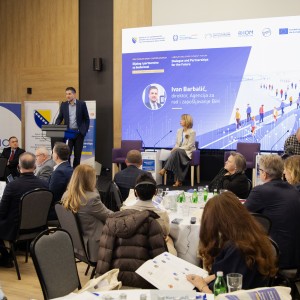News
05 November 2025 |News
RCC ESAP 3: Western Balkans Advance Social Rights but Face Persistent Gaps in Implementation, 2025 EPSR Review Finds
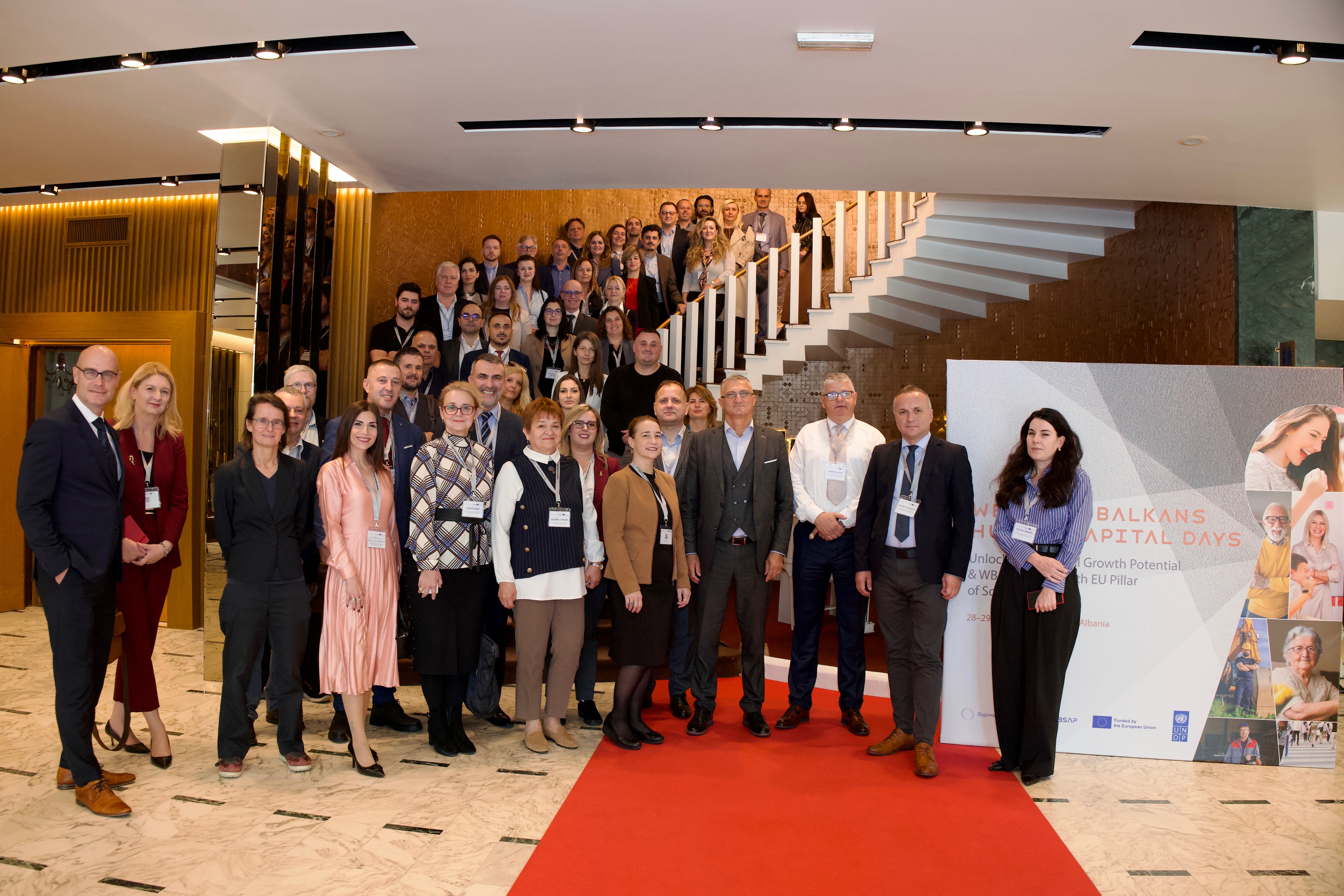
Family photo of the participants on day 2 of the Western Balkans Human Capital Days event (Photo: RCC ESAP 3/Henri Koçi)
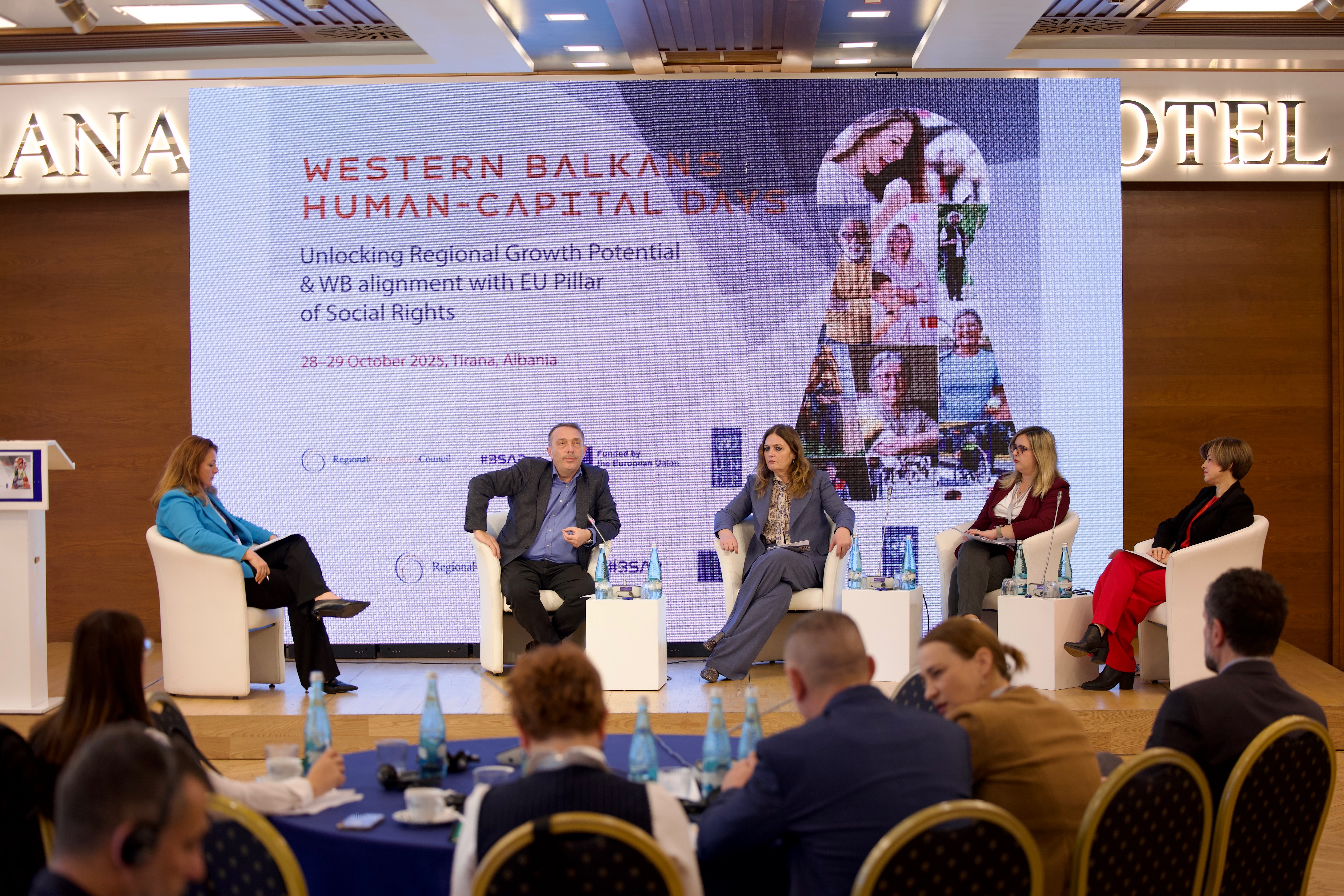
Panel discussion: "What Do We Mean When We Say Social Rights?" (Photo: RCC ESAP 3/Henri Koçi)
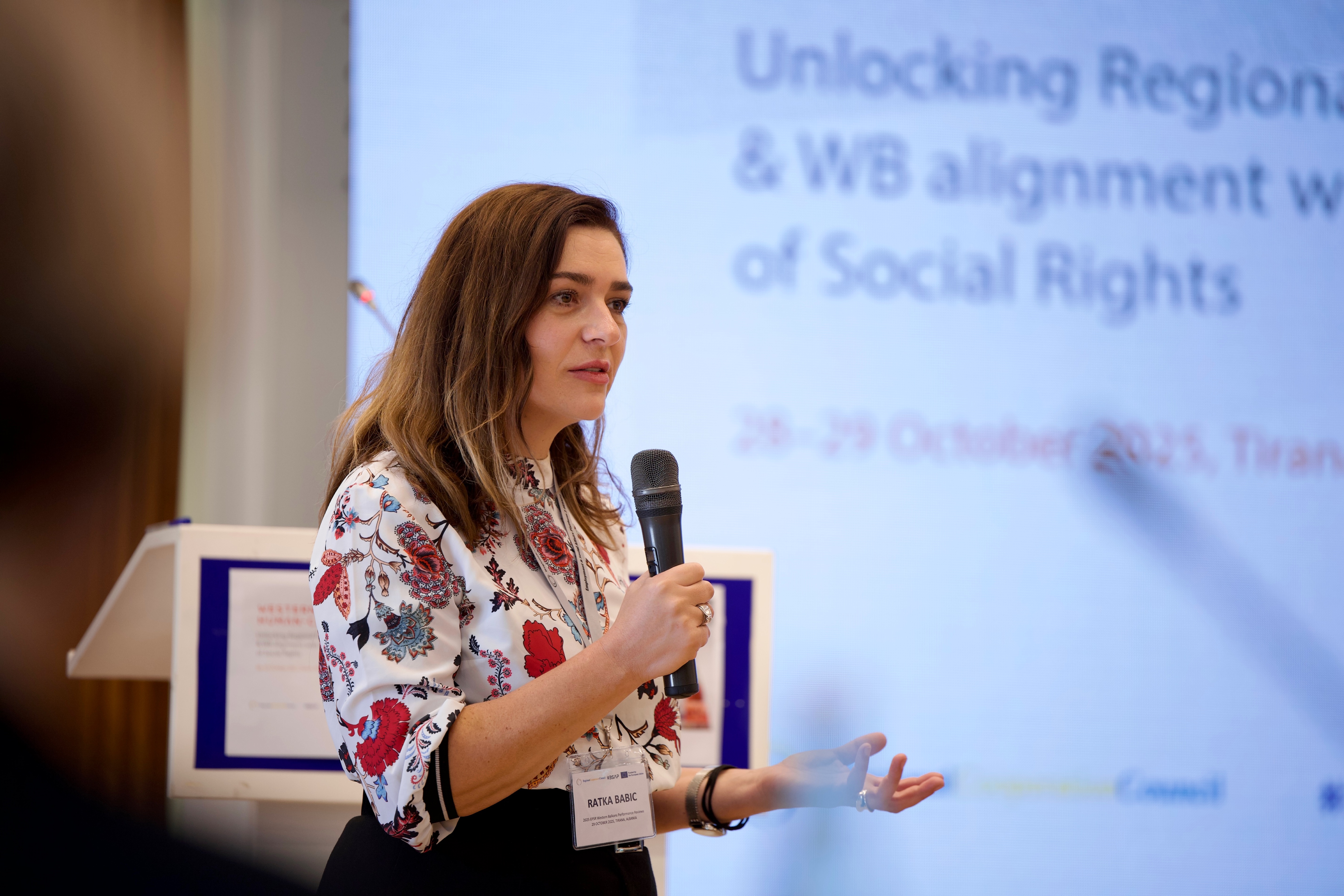
RCC ESAP 3 Team Leader Ratka Babic adressing the audience (Photo: RCC ESAP 3/Henri Koçi)
The Regional Cooperation Council’s Employment and Social Affairs Platform 3 project presented 2025 performance reviews on the Western Balkan Six alignment with the European Pillar of Social Rights, during the Western Balkans Human Capital Days event held in Tirana, Albania, 28-29 October
The Regional Cooperation Council’s (RCC) Employment and Social Affairs Platform 3 (ESAP 3) project organised an event in Tirana, Albania on 29 October 2025, to present the regular performance reviews of the Western Balkans (WB6) regarding their progress in implementing the European Pillar of Social Rights (EPSR). The presentation included six individual reports and a regional comparative overview, outlining both achievements and remaining challenges in the social policy domain.
The event was opened by Ms Jorgjeta Marko, from the Ministry of Economy and Innovation of Albania, Mr Siniša Marčić from the RCC, Ms Laura Corrado, from Directorate-General for Employment, Social Affairs and Inclusion (DG EMPL), European Commission; and Ms Vesna Džutevska-Bisheva, from United Nations Development Programme (UNDP).
Presenting the regular performance reviews, ESAP 3 highlighted that the WB6 has made significant commitments to align their strategic and legislative frameworks with the EPSR principles. However, implementation remains uneven, often constrained by limited institutional capacity, political fragmentation, and weak inter-sectoral coordination. The reports identified key challenges that continue to affect the region, including high youth unemployment, low participation in lifelong learning, persistent gender inequalities, fragmented social protection and healthcare, and long-term care systems. The project also presented the videos from its awareness raising campaign “Imagine if…”, featuring citizens’ of the region perceptions on the certain ESPS principles to do with decent working and living.
Mr Bernd Wild from the European Commission’s DG EMPL presented the EU’s plans related to the European Pillar of Social Rights and Enlargement, outlining several new and forthcoming initiatives such as the Union of Skills, the Anti-Poverty Strategy, and the Quality Jobs Act, as well as the latest updates on the WB6’s EU accession process, including the Enlargement Package.
The event also hosted a panel discussion exploring the meaning and relevance of social rights in the EU and Western Balkans contexts, their connection with the UN Sustainable Development Goals (SDGs), and their role in promoting social and economic development.
In addition, two parallel breakout sessions enabled active participation from all attendees:
- Breakout Session 1 – Tackling Undeclared Work in the Digital Age, focused on the challenges of informality and undeclared work within digital labour platforms, including detection, prevention, and formalisation practices, as well as emerging trends and data.
- Breakout Session 2 – Strengthening Labour Market Governance and Services in the Western Balkans, examined effective active labour market measures (ALMMs) and public employment service (PES) reforms, alongside the European Training Foundation’s (ETF) work on aligning skills development with labour market needs, with a particular focus on green jobs, practical tools in jobs-skills matching from EU PES Secretariat as well as experiences with ALMMs for green skills from Employment Service of Slovenia (ESS).
The event gathered key stakeholders, including representatives of the ministries of labour, labour inspectorates, public employment services, and tax authorities from across the region, along with European partners and experts. It was organised as part of the Western Balkans Human Capital Days: Unlocking Regional Growth Potential and WB6 Alignment with the EPSR, jointly hosted by the RCC, RCC’s ESAP 3 project, and the UNDP, in collaboration with the EU (DGs NEAR and EMPL).


